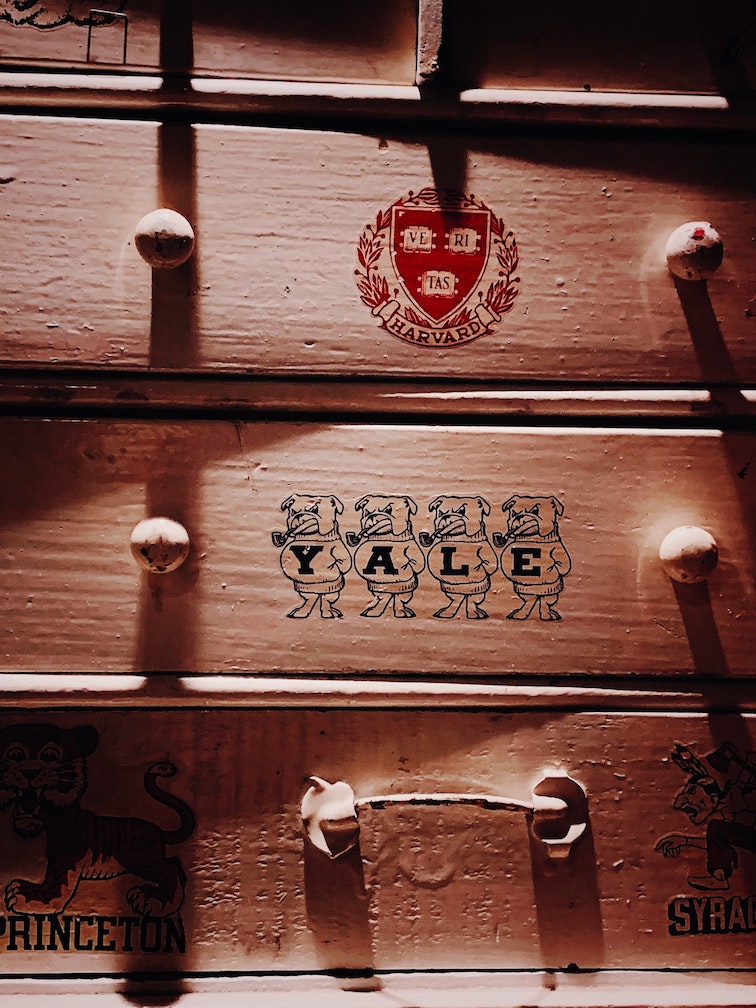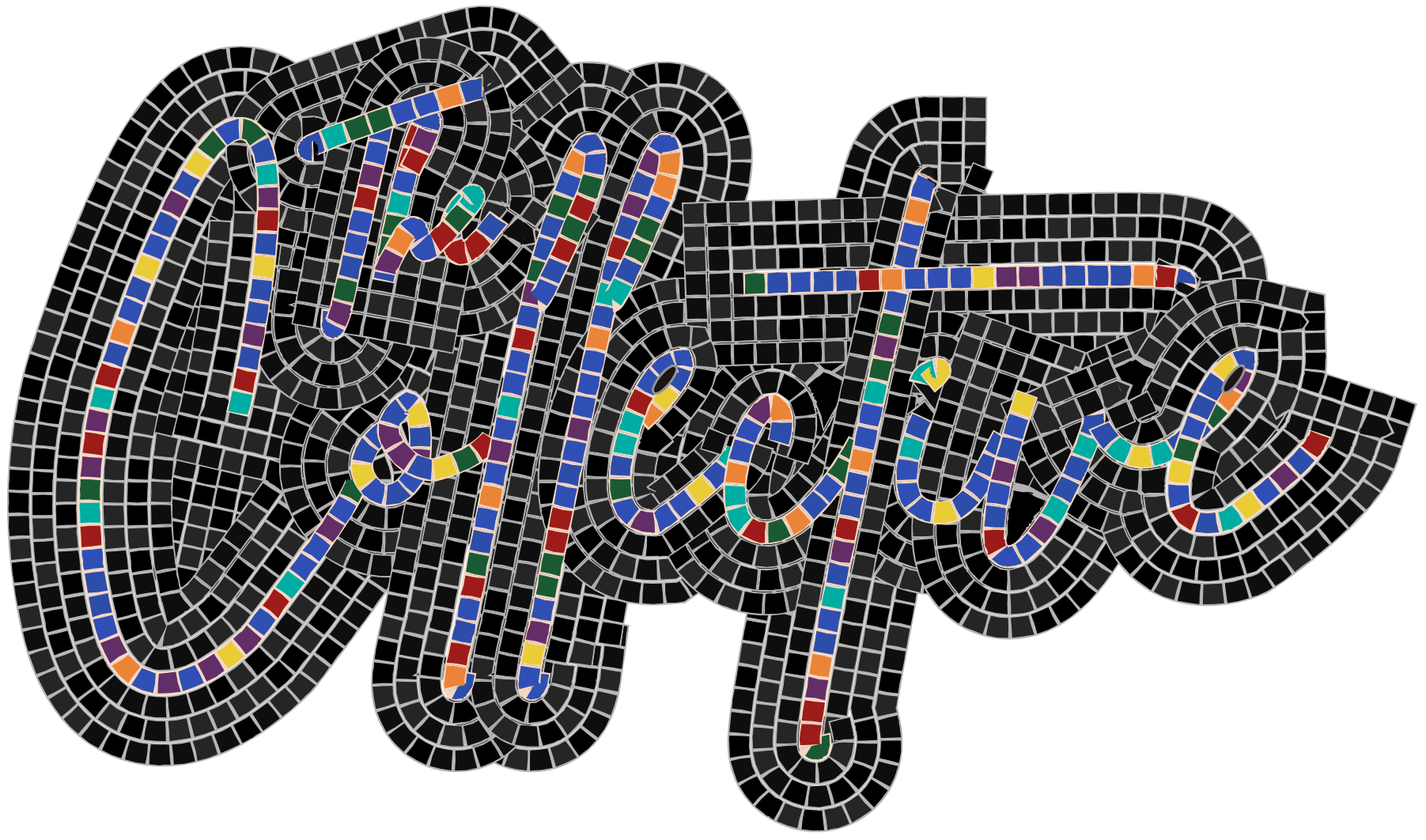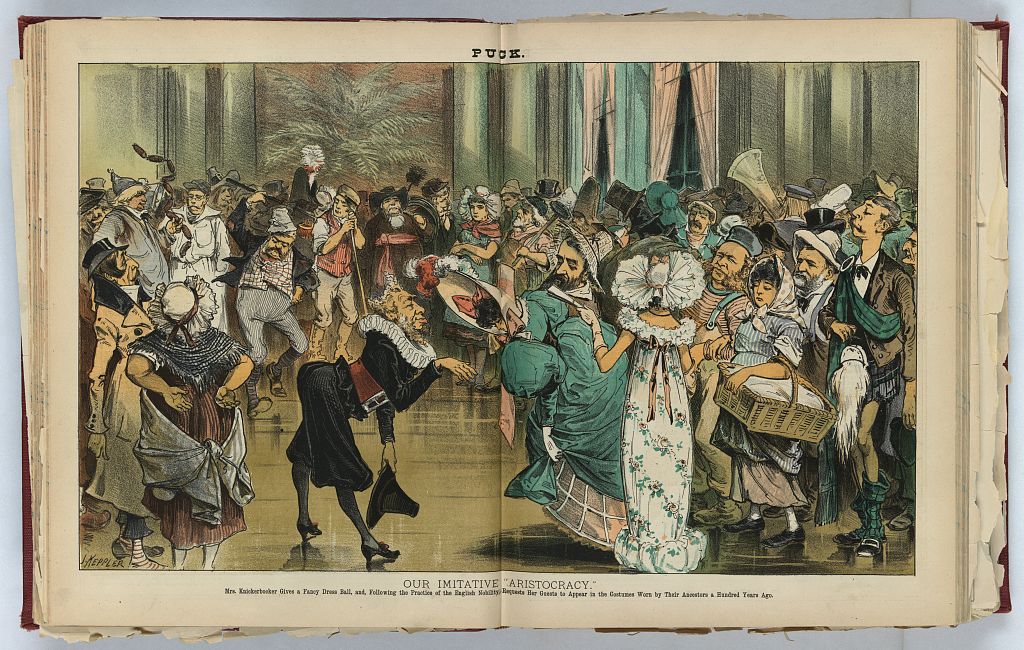Susan Sontag graduated from high school at fifteen, the product of a solidly middle-class, if unhappy, childhood. She entered UC Berkeley and then transferred to the University of Chicago to graduate by eighteen. One year before graduating, she married a sociologist at UChicago, a relationship that gave her intimate access to academic life, and that led to a year of hosting Frankfurt School scholar Herbert Marcuse as a houseguest. As unacceptable as this relationship was according to any reasonable ethical standards, it also provided her with the innermost access to the highest levels of academia on both personal and professional levels. After earning an MA at Harvard, she tried out Oxford, didn’t like it, and moved on to the Sorbonne. The rest of her story is a lifetime as one of the foremost public intellectuals of the late-twentieth century.
This brief and partial biography has several lessons. First, Sontag’s brilliance and forceful personality were certainly on display from an early age. Not only did she achieve academic success extremely early, but she was able to hold her own and develop herself even in conditions that can best be described as unconventional and inappropriate. Second, predatory behavior in academia was alive and well mid-century (and clearly predation in academic society is in no way restricted to “passive” or “vulnerable” people exclusively). Third, without diminishing the role of personal ability, it is clear that institutional and social access are crucial to academic and cultural success. This last point opens up a space to think about the nature of “class” in contemporary academia and the so-called culture industries. Extending some previous thoughts about the corrosive nature of class-based gatekeeping in academia, I’d like to think more systemically about this question, including what the academic class is, how it shows meritocracy to be a lie, how it intersects with race and gender, and most importantly, how we can use it to see a narrative of increasingly restrictive access to academia, contrary to grand claims made by universities about Diversity, Equity, and Inclusion.
The crux of my argument is this: there exists, at least within the US and English-speaking world more broadly, an academic class, and social mobility into this class is becoming critically restricted and increasingly impossible. The idea of a comprehensive grouping for scholars is not new, with notions like intelligentsia, the academy, cognoscenti, a community of letters, etc., all trying to imagine a cohesiveness to the group of people who are society’s thinkers, notably those who are employed by universities. These groupings are not particularly useful, however, as they tend to focus on social and cultural cohesions while shunting economic considerations into different frames — for example, by claiming that the intelligentsia belongs to the “middle class.” While some academics may in fact be “middle class” according to income and social inclination, “middle class” as a concept fails to capture how being a “thinker” is now effectively and completely tied to the ability to gain particular employment and do particular work. Thus, while access to membership in the intelligentsia might be restricted due to barriers to receiving education or expectations of cohering to a set of political beliefs, access to the academic class is in reality predicated entirely on one’s ability to get and maintain academic employment at a university. The reasons for this, as we will see, and the forces choosing to uphold this status quo, are entirely predicated on the discriminatory and absurdist logic of elitism. Most importantly, this exploration is not simply about describing the academic class, but about considering how any attempt at fostering justice in knowledge production must grapple with this logic specifically. Trying to fix academia without undermining elitist exclusion is a fool’s errand.

Class Trouble
Class is a tricky subject in general, even without the particular United States assertions that class isn’t very useful to sociological analysis but also, paradoxically, that basically everyone does or wants to belong to the “middle class.” What is class? The simplest answer, that class is based on income levels, has the benefit of hard numbers but is too woefully oversimplified to be of much use on its own. The classic American understanding of middle class as a kind of statistical and sociological group of “normal people” is a fascinating construction in its own right, but clearly far too uncritical of a concept to be used as a critical tool. A classic Marxist understanding of groups of people banded together based on their shared relations to the means of production is more useful, but a bit obtuse in an information economy (what is the means of production of writing?). Further, definitions of class and class analysis must be careful to not fall prey to class determination, i.e., ignoring other major sociological categories like race and gender, on the one hand, or the opposite problem, rendering class meaningless in the face of different categories. In this instance, I want to understand class as being a social group made up of people whose labor is more or less similar, and whose primary terms of employment are related to that labor. In other words, a class is a group of people essentially doing the same or closely related jobs at the same or similar institutions. This is in no way satisfactory as the only definition of class, but I think it is useful and necessary as a definition, particularly if we are to understand how the academic class functions as a class.

Income is an insufficient standard — in my own department, which is a fairly large group at a moderately prestigious public university, pay ranges from $20,000 a year to $170,000 a year, all for essentially identical jobs (producing knowledge through teaching, research, and writing). This discrepancy is even wider if we consider, say, adjunct laborers at small state universities versus named chairs at Ivy League institutions. This wide disjunction might put a dent in the idea of an academic class — why not simply focus on the class divisions of people who do academic work? In short, this is because I want the concept of an academic class to be not just an analytical frame but a political one. I argue that we need to understand academic workers as belonging to the same class because I want to force the question of who is and who is not in academia to be understood as an issue of class mobility, rather than, say, research ability. This is doubly important because, as we will see, being “in” academia is largely a question of one’s ability to survive its class inequalities. The ability to do knowledge work in our present social condition is a question of whether one is able to successfully move into, and stay in, the academic class.
To foreground this understanding, we need to acknowledge several components of contemporary knowledge work. First, academic work has become entirely professionalized. This is not a new story, and is amply demonstrated in histories of academic disciplines and disciplinarity, in which the humanities began to organize themselves according to rules and codes of professional standards in the mid-nineteenth century. In History, for example, this process was actively championed by figures like Edward Gibbon and Leopold von Ranke, both of whom advocated for a historiography based upon documentary, archival evidence in the pursuit of an “objective” history. Alongside the restriction of what “counted” as professional history work, the discipline also became increasingly concerned with credentialing — requiring university degrees and, ideally, university positions in an effort to exclude amateurs who might not be as willing to accept new standards and practices.
This work, often done in the explicit service of European colonialism, was picked up by the natural sciences and later the social sciences over the course of the late nineteenth and early twentieth centuries. While there are questions to be asked about the conditions under which this process of professionalism and disciplining happened, it is probably reasonable to want the people calling themselves experts to have some kind of foundational training, even if we dispute the form that training takes. This process of maintaining standards and credentials is largely similar to lawyers and medical doctors — while the components of professional standards might prompt disagreement, it is probably a general social good to know that these professionals have a baseline capability or background. I’m not, however, suggesting that there is a lawyer class or doctor class. So why an academic class? The distinction is in the fundamental difference of the work. Academic workers are intended to produce new knowledge, and thus the bounds of professionalization are always going to be fuzzier. There can’t be a single required course of study or culminating exam, and so professionalization has to be enforced differently.

This takes us to the next foundational point. The professionalization of knowledge production has in fact come to be entirely overdetermined by its complete association with the institution of the university. Since there can’t be an equivalent to a bar exam for knowledge creation, even within specific disciplines, the problem of policing professionalization for knowledge production falls to a question of credentials, which means institutions must provide those credentials. At one point the credentials for knowledge production included a BA, but have since expanded, now including not just a PhD or equivalent terminal degree but continued professional affiliation with a university. This inherent need to be both a graduate and employee of a university in order to be considered a serious producer of knowledge is, I argue, why we need to consider the existence of an academic class: a social group with clear gatekeeping, centered around a particular job and mode of employment, with both benefits and requirements for continued membership.[1] Much as income level and behavioral standards govern who is in the “middle class,” or wealth and family status govern an “aristocracy,” continued university affiliation (with all the rules and issues contained therein) governs who is in the academic class. As I will discuss next, the problem with this is that precisely at the same time university affiliation has become the determinant of academic class membership, and thus the determinant of who gets to produce knowledge, attaining and keeping university status is becoming ever more difficult and, more to the point, ever more restricted to a pre-existing membership.[2]
Getting in
If the primary gatekeeping component of the academic class is university affiliation, then it is clear that the first thing we need to do is go to college. Luckily, on one level, matriculation for a BA degree is the easiest it’s ever been, at least in the United States. The massive expansion of community colleges, state university systems, financial aid (federal, state, and private), and (more maliciously) the frictionless availability of almost unlimited student loans, makes getting into and (in the short term) paying for a BA something nearly anyone with a high school diploma or equivalent can do. There are, however, complications — that is, if we want membership of the academic class to be our goal — in two interrelated issues: which college you first attend matters a great deal to future success; and you also need to get into a PhD program, a process that, in counterpoint to the BA, is possibly more difficult than it has been for the past hundred years.[3]

In order to illustrate this point, it is instructive to look at the writings of specialists in my field, colonial history. Thankfully, a number of the most prominent scholars in the field have published essays reflecting on how they became historians of empire. In one example, Priya Satia, a historian at Stanford whose work has had a tremendous impact on my own, traces her winding path to membership in the academic class: After undergraduate work at Stanford in chemistry, study-abroad at Oxford, a summer at NYU for “film school,” and an MA from the London School of Economics, she “landed” at Berkeley for a PhD in History, despite having no previous academic experience in the field. She transferred, seemingly with no friction, to Princeton to finish her PhD, and then managed to secure a temporary job at Stanford that transitioned into a full-time, tenure track position. I do want to acknowledge, in particular, the difficulties, frustrations, and injustices Satia calls out in response to the overwhelming maleness and whiteness of the academy, and I certainly have no interest in downplaying any component of the seriousness of this intersectional complexity. Rather, I want to point out a component of the class nature of the academic identity that seems more prominent here than elsewhere: the power of institutional pedigree as a gate-opener. Indeed, I decided to use this narrative not just because it’s a moving and accessible story of becoming a scholar, but because it very precisely demonstrates that just as white supremacy and patriarchy are gatekeepers to academia, so is a separate question of elite-ness. Without wanting to put words in her mouth, I read Satia’s essay as showing that with the right elite credentials, many things can be overcome.
Many other top scholars in the field have stories similar to Satia’s. In the useful and fascinating collection How Empire Shaped Us, scholars of British colonialism from Antoinette Burton to Dane Kennedy describe how they became professional scholars. All have personal differences, but the narratives and rhetoric bear striking similarities to Satia’s on the question of elite access. Undergraduate work at the world’s most elite universities led to graduate work in the same echelon, which in turn led to jobs of the same. Rhetoric across these reflective essays is often repeated, with students “falling into” graduate work at Berkeley, Harvard, or Cambridge despite fundamentally no preparation or training, undergraduate advisors smoothing roads into prestigious institutions, and adolescents’ unexplained abilities to undertake long journeys abroad with seemingly no lack of research money at any stage.
I point this out not to shame any of these scholars, the vast majority of whom are brilliant, have contributed to (and in some cases created) vast spheres of knowledge integral to understanding our past and present, and often have eagerly served as mentors, interlocutors, and general kind elders to their successors. I do think it is important to note, though, that these reflections are alien to the experiences of most people who actually do produce knowledge in the academy, whether in History or elsewhere. Missing are the experiences of attending undergraduate institutions that, while often full of wonderful faculty, are seen within academia as lacking prestige, not to mention possessing fewer resources than wealthier universities. Missing, too, are the experiences of those that must frantically work to functionally be at graduate level during undergraduate degrees, in order to offset lapses in pedigree so they can make it through the graduate application gauntlet, and then enroll in expensive MA programs that compensate for “deficiencies” in records, not to mention the additional debilitating student loans, the extreme anxiety of the actual process, the endless checking of GradCafe to try and make waiting bearable, and the endless stream of rejection.

Why does this disjunction matter? It is important we note that meritocracy is a lie. People who go to Yale are not in fact smarter than people who go to state schools, and yet the best indicator of whether someone will go to Princeton for graduate school seems to be whether they did an undergraduate degree at Harvard. Even elite scholars who are willing to grant this empirically true fact about meritocracy at the undergraduate level cling to the equation of eliteness and excellence at the graduate level, somehow missing the gap in meritocratic logic — i.e., admitting that undergraduates at Harvard might not be magically smarter than undergraduates at the University of Iowa, but then still maintaining that ill-founded belief about graduate students. This suggests to me that we cannot consider academia, along with law and medicine, to simply be a branch of the petite bourgeoisie nearly uniquely predicated on merit, i.e., natural ability and demonstrated success for entry. Rather, it is a classed institution that maintains its own internal hierarchy. While genuinely brilliant scholars do come from and work at the most elite universities, this status is no guarantee of brilliance or even basic ability, as amply demonstrated by the Harvard history department. This suggests to me that academia does in fact function more like a sociological class than “simply” a marker of ability and interest; it’s about access, which is carefully guarded, set up to reproduce an existing social system, and fundamentally disconnected from reality. Just as whiteness doesn’t actually correlate to intelligence, Ivy League correlates to academic ability far less than it correlates to wealth, and in the end, Ivy League correlates most closely to Ivy League.
Even if I’ve partly demonstrated that the upper echelons of academia function like a class, and indeed like a kind of aristocracy, there is a glaring hole in my argument — most knowledge producers work at non-elite institutions. A prospective faculty member doesn’t need a BA from Harvard or a PhD from Princeton to get a job at Saint Cloud State (although it can help), and there are far more Saint Cloud States than Harvards. So isn’t this just a sort of sour grapes whinging? The fact that you seem effectively locked out of the highest reaches of academia if you don’t start your career there at age eighteen is perhaps a problem, but surely this doesn’t mean that there’s an “academic class” which increasingly restricts who can be a knowledge worker if they’re willing to take a prestige hit? This would be true, if not for the increasingly precarious and difficult manner of “staying in,” as, if you recall, membership of the academic class is predicated on continued professional university affiliation.
Staying in
The reason I place so much emphasis on the conditions of how people “get in” at the highest level is that, simply put, this is the most effective way to “stay in.” There is a truism, at least in the humanities, that you will not be hired at institutions which are ranked more highly than the one from which you got your PhD. This means that if you’d like to work at the wealthiest (and most stable) institution, you need to have gotten your doctorate from another similar one. If you want to work at Harvard, you need a PhD from Princeton or Columbia, which in turn, as we’ve seen, means that you’ll need to have entered Berkeley or Brown at age eighteen.[4] Thus, if you “only” manage to do a PhD at a middle or low-ranked institution, you’ve already lost access to a wide tranche of possible places of employment. It is only those lucky few at the top end of the spectrum who have maximum choice.
The issue of staying in, in terms of employment and pay, begins even earlier than finding a job. Pursuing a PhD is a more-than full-time job. The vast majority of programs have moved toward providing funding as part of admission, but this funding is generally below the poverty level of any given school’s location, is often contingent upon work that cuts into research and teaching time, and is also time limited, generally to five or six years. For comparison purposes, I’ll note that the median time to completion of a PhD in History was eight years…almost a decade ago. Thus, if you aren’t able to bear at least some of the cost of rent, food, and other life expenses, either through family, savings, loans, or the income of a partner, staying in the academic class even during this initial period becomes impossible. Further, research funding, at least in the humanities, is incredibly limited. Since funding is required to complete the research that not only enables actually writing a dissertation but makes one a compelling candidate for further competitive grants, and eventually jobs, only those people who have large amounts of funding during their education are able to assume some kind of security. In other words, in academia as elsewhere, money leads to money. One of the common links among the bildungsroman of historians working at elite institutions is that they were able to self-fund (or family-fund) research experience before even starting a PhD, “finding” themselves doing archaeological work or visiting archives in multiple countries. This, along with elite undergraduate credentials, gives them a leg up in PhD applications to elite institutions, which in turn gives them a leg up when it comes to grants and jobs. In other words, the conditions of getting in have a huge impact on the ability to stay in. While it may be “easier” to get into the University of Minnesota than Harvard, that ease comes at a price, at least for new members of the academic class who don’t have unlimited money behind them.



This process continues after the PhD with the job market. As I noted above, the job market is particularly important because, while anyone who manages to drag themselves across the finish line of a PhD is entitled to call themselves a historian or literary critic or philosopher, actually belonging to the academic class means that you need to continue to be affiliated with an institution of higher learning. While there are always a sprinkling of “independent scholars” at major conferences, the reality is that access to resources (including things like archives and journals), being taken seriously by the scholarly community, access to publishers and agents, and of course time and money dedicated to esoteric tasks like “research,” are all now concentrated almost exclusively within the university as a professional setting. If you want to work as a knowledge creator, you need to work as a knowledge creator in the only place where this has been deemed professionally appropriate — the university.
So, getting a job.
According to the most recent available jobs report from the American Historical Association, in 2019 there were 697 jobs available to professional historians. This might seem like a lot, except that 163 of those were for non-tenure track positions, 274 were for postdocs, and 124 were for jobs “beyond the professoriate.” In other words, more than half the jobs available either did not lead to a secure tenured job or were in fact outside the knowledge production zone of the university. Still, that’s a lot of jobs! Until we look at the number of people who need those jobs. In 2019 alone, 986 new PhDs were awarded just in History, and that’s only in the United States. That means that even if every one of those jobs was filled with a new PhD, nearly three hundred people would be left out. This situation looks even more dire when we consider that this gap exists for all previous years, meaning that the unemployed is a pool that only grows, never shrinks.

Further, there are several dirty not-quite-secrets in this data. The AHA does not mention that any tenure-track positions not advertised explicitly as assistant professor (the lowest rank) will almost undoubtedly go to people who already have tenured positions and are looking to “trade up” in the rankings or move to a more desirable location. There is also the issue of failed searches, in which job committees never actually end up hiring anyone, as well as the above-mentioned issue of elite cut-offs: one is only eligible for jobs at institutions ranked the same as yours or lower. The dirtiest secret of all: scholars who haven’t landed a tenure track job within five years of obtaining their PhD are almost universally seen by hiring committees as expired or tainted goods and are summarily thrown out of the process. By sheer numbers alone, the vast majority of people earning PhDs are condemned to a life as adjunct laborers, teaching with no possibility of promotion or stability.
Let’s think about these positions. Most non-tenure-track positions are adjunct positions, that is, they involve hiring individuals to teach discrete classes without any kind of ongoing contract. Paid an average of $5,000 a class, adjunct instructors have no benefits, no stability or guarantee of employment year to year (or even semester to semester), no research benefits, and as we’ve seen, are on a ticking clock to try and make it out. The workload and lack of benefits is such that adjunct life is now routinely recognized as unhealthy to the point of fatality, as in the case of Thea Hunter. At this stage, 75.5% of all college instructors are adjuncts, and at least a quarter of those are on federal or state assistance.

Why would anyone pursue this? The answer has to do with the ideological composition of the academic class. Students are continually told, explicitly and implicitly, by tenured faculty that the only real producers of knowledge are members of the academic class, that is, people with a PhD qualification who are working in teaching and research jobs at universities and colleges. The inside/outside boundary is relentlessly policed and reinforced, with anyone outside considered no longer a member of the scholarly club. This is often painted as a matter of rigor and proper credentialing (if you flunked out it’s because you’re not good enough or you don’t care enough) but is generally a snobbish and vindictive way to deflect attention away from the fact that, at this point, most people who enter the academic class will be unable to stay in simply by virtue of numbers. Far more damning is the fact that, in an era of greatly reduced budgets and administrative support for scholarly work, the upper strata of the academic class — the tenured professors — requires a massive underclass to actually do most of the work. The only way to ensure the continued gentility of middle-class salaries, research stipends, insulation from teaching, and international travel for the few, is to shift the burden of both work and budget cuts onto somebody else. The only way to fulfill what might be a lifelong dream, and is certainly at least a decade of work, is to just keep trying. Leaving means being ostracized. Once you exit the academic class, you’ll never be taken seriously as a producer of knowledge, and so it looks like a losing proposition to not take the dregs that are offered. Accepting a “career” as a permanent adjunct becomes a lifeline to stay in, to have some credit as a knowledge creator, to be taken seriously as a teacher and a thinker, rather than what it actually is — an exploitative and absurd proposition that should be rejected out of hand. You need to remain within the narrow confines of behavior set by the class (continued professional association with a university) in order to reap the specific benefits of being considered a knowledge creator — it’s not a meritocratic offshoot of the bourgeoisie, or a simple type of job, it’s the kind of ideological construction that essentially gets to determine your entire social being. Of the top-level sociological categories (race, gender, etc.), class is precisely the right way to understand this aspect of how academia functions.
Why class matters; why DEI will never be enough
The reason any of this matters rests on a few simple propositions. If we want to have a society that is equitable, just, and capable of healing the harms of past injustices, then it stands to reason that the production of knowledge should be at the forefront of this process. If the production of knowledge is something that happens exclusively in universities, then it stands to reason that universities should be truly open places and that this work should be as widely available as possible. This is, unfortunately, not the case. While university access at the undergraduate level is perhaps more widespread than ever before, this both comes with more debt than it ever has and does nothing to eradicate the deep, elitist inequalities within college “rankings.” This is demonstrated by the academic class in the paradox of getting in: it is both easier to get in (more universities offer more spaces to more types of people for PhD programs) and also more difficult (in terms of effort and money required) than it ever has been. People are sold a bill of goods to attend low- and middle-ranked PhD programs, where they find that instead of becoming valued and equal members of a meritocratic and largely equitable class of knowledge producers, they are coerced into becoming permanent members of the underclass through a cult-like production of fear of ostracization and loss of identity. Success is for the people who started (literally at age eighteen) successful, who were able to lock in academic access at the highest levels before they’d even begun.

In other words, despite drawing in a larger and more diverse workforce than ever before, academia is effectively becoming an aristocracy. I mean this metaphorically — insofar as a numerically massive number of penniless nobles might be coerced to keep up appearances instead of going and getting jobs through fear of not being invited to the royal ball — but also quite literally, insofar as the surest guarantee of one’s success in academia is whether or not one’s background is sufficiently elite. In many ways, the academic class is literally becoming hereditary, especially if we consider only the tiny percentage of academic workers who hold tenured positions. Even in a world where more people than ever are college-educated, the class of people who do the educating, and who produce and disseminate the knowledge, is actually contracting. The importance and role of elite institutions as the only sure route to secure jobs is at its highest point since before World War II. Academia is now on track to be dominated again by the kind of people who go to elite institutions, rather than any kind of democratic or diverse population.
I want to underline this importance by briefly talking about the paucity of the latest bandaid to distract from systemic inequality: Diversity, Equity, and Inclusion, or DEI. In ironic contrast to its name, DEI as an action is largely just banal “diversity” practices, often the specific hiring of targeted individuals from “diversity groups.” Rather than tackle systemic problems around actually democratizing knowledge production and tackling white supremacy as an institutional issue, the most concrete outcome of DEI is the targeted hire of a scholar of color, queer scholar, or scholar from another “diverse” background.[5] Not only does this completely fail to do anything at all at the systemic level, it often makes things worse, even if it is marginally better than hiring practices that “mysteriously” select white men again and again as the “most qualified” candidates. On the one hand, this targeted hiring tends to actually disintegrate the complex work that thinking intersectionally asks us to do — if all you need is a Black candidate, the all-Harvard educated child of wealthy and powerful parents is theoretically equal to the candidate who is a first-generation graduate of a mid-level state school, leaving the committee free to make the “meritocratic” choice rooted in elitism. Indeed, in this way, DEI often reinforces and covers for elitism by allowing academics to completely ignore the problem of elitism as such. On the other hand, if DEI does result in the hiring of academics who come from non-elite backgrounds, they tend to find themselves dumped into deeply classist, racist, and sexist environments, basically selling soul and safety for the privilege of academic class membership and being held up as examples of a good deed by problematic institutions.
The reason I want to advocate for thinking about academic class, instead of a DEI approach that centers around individuals as solutions, is precisely that the existence of an academic class makes us think critically about what academia is and what the problems are with its membership in a way that DEI doesn’t. Obviously scholars of color can be members of the academic class, and so we need to engage more deeply to figure out what the deal is with the class’s white supremacy. The same goes for questions of its patriarchal nature, its fundamental conservatism, and its deep, deep institutional elitism. DEI allows small numbers of people to incorporate into a deeply unjust, unsustainable, and in many ways fundamentally evil system without actually changing a single thing — individual success at the cost of social justice. Forcing ourselves to conceive of academic class invites us to see that the only possible solution to the problems of academia is a class war for the benefit of all.
Что дѣлать?
This all may sound pessimistic, and that’s because it is. If we actually want anything to get better, we need to recognize that a wonderfully free, meritocratic, academic commons in which people from all walks of life can become knowledge producers has always been an unrealistic dream, at least as it is currently envisioned. In a world in which Harvards exist, sucking up all the investment before it’s even been truly dispersed, in which there is no popular will toward egalitarianism, in which the powerful are committed to constricting non-elite education to middle-management job training programs, we need to be realistic about how we act. To be entirely clear — in the age of the neoliberal university, class mobility is dead. No amount of singular diversity hires, sensitivity trainings, first-generation recruitment searches, pipeline programs between elite institutions, or even unionizing campaigns is going to make academia more expansive in any meaningful way. Liberal arts colleges will continue closing, non-elite state schools will continue eliminating departments and programs not directly tied to job training, elite schools will continue to get more difficult to get into, academic jobs will further dwindle, and tenure will disappear for all but the most elite universities. There is no way to stop this either by continuing the status quo or with mild “reforms”, and anyone who disputes these facts is either simply not paying attention or is a tenured faculty member deeply invested in pretending nothing is wrong with the world they’ll leave behind. Academia is on track to look like what it was in the late nineteenth and early twentieth centuries, if perhaps slightly less white and male, and there’s nothing we can do to reform our way out of that outcome. This is all the more devastating when we remember that the academic class has claimed knowledge production as its exclusive right.

That sucks, it does, but it was always a foregone conclusion, since attempts to expand higher education left in place the notion of a deeply classist hierarchy as its supposedly meritocratic core. So, what do we do? If you’re someone in a position of power — namely, a tenured academic — you are ethically bound to engage in harm reduction. You need to be honest with students at state schools that it’s almost certain they won’t secure an actual job if they choose to pursue graduate work. You need to refuse to admit PhD students who clearly won’t be able to support themselves as a member of the academic class without institutional support that won’t be forthcoming. You need to fight adjunctification, and failing that, be honest with current adjuncts that they won’t be hired to permanent positions at your institutions. Be upfront in job ads that “expired” scholars won’t be considered at all, be clear that these positions are dead-end, terrible jobs that nobody should take. Above all, be aware that it is not radical and it is not a kindness to subject people to harm in order to make academia, or yourself, look (but not actually be) more tolerant, more open, more egalitarian. Your hypocrisy is not only abundantly clear, it is evil.
For the rest of us, what remains, at least if we care about knowledge and we care about society, is a kind of class war. Refuse to do unpaid work, including articles and book reviews. You won’t be hired anyway, so why bother? Refuse to apply for adjunct and non-permanent positions. Again, you probably will never land a full-time job, so you could either serve your elite betters by performing underpaid labor for them, or you could cut the legs out of the entire neoliberal system by refusing to play along. Don’t act like you’re too good for a service or blue-collar job because that’s what tenured academics asked you to think — there might not be much dignity at Target, but there’s a damn sight more than as an adjunct.

Make and disseminate knowledge in ways that are outside academia entirely. Teach in the park! Try and find ways to write for the public. Contribute your knowledge and experience to unionization campaigns in your newfound non-academic workplace. Have conversations with coworkers; it’ll amaze you how insightful and radical actual people can be outside the ivory tower. Consider teaching children in some capacity. Take the time to read and engage with actual radical knowledge now that you don’t need to deal with that pesky canon. Sit in on political meetings, whether indigenous groups, BIPOC groups, renters’ unions, transit riders’ unions — listen and consider how to contribute. Think about how you can use your knowledge to serve your community now that you can’t use your job as a facile cover for “doing something important.” Fight. Fight! Believe that the best you could possibly do isn’t an underpaid tenured job somewhere you don’t want to live, hanging on to the academic class with bloodied fingers while you’re surrounded by people who don’t want you there anyway and only tolerate you because you provide some sort of DEI coverage at best. Make TRUTH! Make BEAUTY! Make DECOLONIZATION THAT ACTUALLY ISN’T JUST A METAPHOR! You can’t do any of this shit inside the university as it stands now, and certainly not as it will be in the next decade even, so why not seize the moment and do it where you can? If nothing else, want better for yourself.
[1] I generally hold the so-called democratization of knowledge production by the internet to be a sham. First, almost all original research continues to be done by university workers, for reasons outlined below. Second, much produced community knowledge goes through a process in which anthropologists or media scholars legitimate it through incorporation into academic studies; and third, many of the “public” scholars online gained followings precisely because of their credentials. Most “historian here” twitter threads are started by tenured or tenure-track professionals.
[2] Literary writers, visual artists, and performers are not immune to this movement. Much has been written about the MFA-ification of American fiction, and success in the visual arts or music seems to be ever more about the right degrees from the right places, alongside more esoteric things like “talent.”
[3] I will cop to not having a specific source for this, but the anecdotal evidence is strong. In addition to “publish or perish” discussions, senior academics talk about being able to read everything published in their field, application processes being about “deciding” where to go rather than the Hobbesian war of all against all that it is now, fields entirely untouched by previous scholarship and wide open for basic-level investigation, etc. I have sat in on discussions about publishing a whole additional book before completing your dissertation — I feel safe saying that this absurd level of overdetermined pressure and difficulty from all quarters is new.
[4] There are exceptions to this rule, but they are rare enough to be largely unimportant for any kind of analysis at scale.
[5] It’s generally unexamined by white university administrators that considering some identities “diverse” just reinscribes whiteness and patriarchy as normative, but we surely can’t ask better of people at fancy places.








Great article, Andrew! I think, in my own life, the biggest lesson has been the sentence that you say: “it’ll amaze you how insightful and radical actual people can be outside the ivory tower.” Somehow, academics have convinced themselves (and loudly proclaim the story) they’re on the systemic cutting-edge, that they are the radicals, when it’s simply very rarely true now. You’re not cutting-edge when you’re essentially following corporate bottom-line policies, exploitative hierarchical structures, and assembly-line factory processes first established during the Industrial Revolution. I was amazed after leaving higher education how much more unrestrained the world felt outside the bubble. It has always astounded me how unwilling higher education is to make even MINOR common-sense adjustments, always pointing to “committee” reasons why something can’t be done, whereas people outside of academia have a much more, “Why not?” attitude that really makes things happen. Not to mention, most everything in academia now is a literature review; it’s almost like you’re not allowed to say something unless someone “accepted” has said it first. There’s this constant expectation that if you’re not “accepted” (i.e. have a tenure track position at an Ivy League institution) you’re not smart enough to create original thought — you should only be quoting your betters. All this to say, thanks for sharing, and yeah, really, “teachin’ in the park” ain’t bad at all. I kinda love it here.